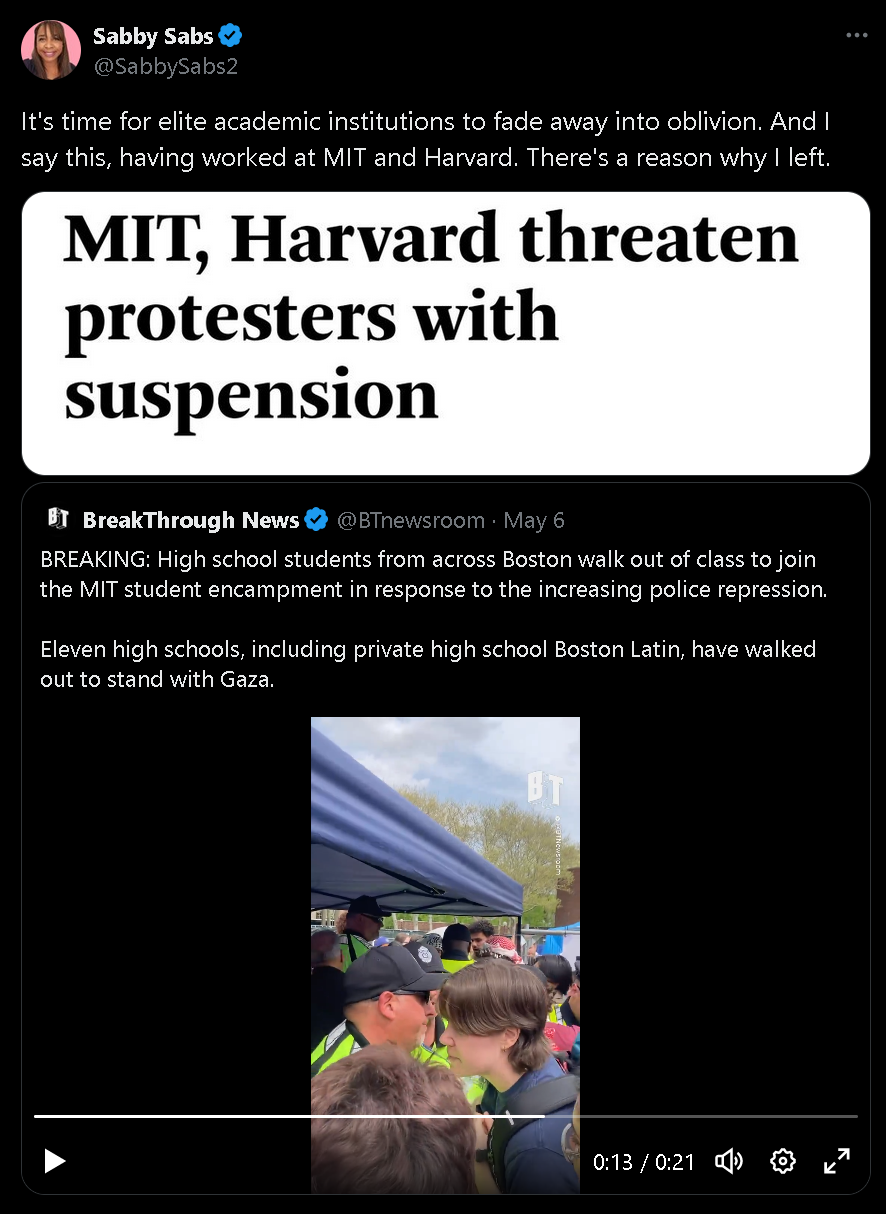Generated Summary of Video Below:
Article: https://www.dropsitenews.com/p/los-angeles-firefighters-begged-the
Arichive Link: https://archive.is/B5AaI
Generated Summary:
Introduction to the Podcast
- The podcast is hosted by Sabrina Salvati, who welcomes her special guest, Jessica Burbank, a correspondent for Dropsite News.
- The discussion begins with Jessica's recent article regarding the firefighter budget in Los Angeles, particularly in light of recent wildfires.
Firefighter Budget Cuts and Impacts
- Jessica highlights a statement from the Los Angeles Fire Chief, who discusses a significant $17 million budget cut, which has severely affected the department's ability to maintain and repair firefighting apparatus.
- The fire chief emphasizes the need for more firefighters and resources, citing a 55% increase in call volume since 2010, yet the department is operating with fewer firefighters.
- The chief also warns that further budget cuts could lead to the closure of fire stations and the elimination of hundreds of firefighter positions, which would compromise public safety.
Discrepancies in Budget Reporting
- Jessica addresses confusion surrounding the budget cuts, referencing a Politico article that inaccurately reported an increase in funding based on statements from budget committee chair Bob Blumenfeld.
- She clarifies that the Los Angeles Fire Department's budget was actually reduced from $837 million to $819 million, confirming a net cut of $17.6 million.
- The conversation includes details about the struggles of the fire department to maintain operational capacity due to budget constraints, leading to a reliance on overtime pay.
Local Politics and Budget Control
- Jessica stresses the importance of local politics, noting that city council members control the budget and citizens should be aware of their representatives.
- Despite the ongoing discussions about budget cuts, there has been a lack of public statements from key political figures, including Mayor Karen Bass.
- The podcast highlights the disconnect between the city's budget allocations and the actual needs of the fire department, which has been exacerbated by misinformation in the media.
Mismanagement of Resources
- The hosts discuss the misallocation of funds, pointing out that while the fire department is struggling, there are significant unspent funds in the city's budget.
- Jessica mentions that the city has allocated $71 million for homelessness spending but has not utilized these funds effectively.
- The conversation emphasizes the need for better resource management to ensure that the fire department can operate effectively during emergencies.
Challenges Faced by Firefighters
- The podcast details how firefighters are often called to respond to various emergencies beyond fires, including issues related to homelessness and drug use in the community.
- Jessica explains that the fire department's capacity is being stretched thin, with many calls related to the homeless crisis, which diverts resources from firefighting duties.
- The hosts argue that the city needs to allocate more funds from the unspent budget to support the fire department during high-demand periods.
Prison Labor in Firefighting
- The discussion touches on the use of inmate labor in California's firefighting efforts, which is allowed under the 13th Amendment.
- Jessica expresses concern about the ethical implications of relying on prison labor instead of hiring qualified personnel to meet the demands of the fire department.
- The conversation highlights the need for a sustainable approach to staffing the fire department, rather than depending on temporary labor solutions.
Environmental and Infrastructure Issues
- The podcast discusses the environmental factors contributing to the wildfires, including climate change and inadequate municipal infrastructure for water supply.
- Jessica explains that the water pressure in fire hydrants is insufficient to handle the volume needed during emergencies, which poses a serious risk during wildfires.
- The conversation emphasizes the need for significant investment in municipal infrastructure to address these challenges and improve response capabilities.
Rebuilding After the Fires
- As the discussion shifts to rebuilding efforts after the fires, Jessica raises concerns about who will benefit from the rebuilding process, particularly regarding luxury developments versus affordable housing.
- The podcast highlights the risk of real estate firms purchasing land at lower prices post-disaster, potentially leading to a lack of affordable housing for displaced residents.
- Jessica warns that the ongoing housing crisis in California will worsen if the needs of those who lost homes are not prioritized in rebuilding efforts.
Homelessness and Community Support
- The hosts discuss the plight of homeless individuals during wildfires, noting that many have nowhere to go and are often swept away during emergency responses.
- Jessica shares personal anecdotes about the treatment of homeless individuals and the lack of support they receive from local government during crises.
- The podcast emphasizes the need for compassion and practical solutions to address homelessness, especially during emergencies like wildfires.
Conclusion and Future Perspectives
- The podcast concludes with a call for better accountability from local government officials regarding budget management and resource allocation for the fire department.
- Jessica expresses hope that more attention will be given to the complexities of local politics and the impact on public safety and community well-being.
- The discussion underscores the importance of informed citizen engagement in local governance to ensure that essential services like firefighting are adequately funded and supported.
#lafirefighternbudgetexposed #sabbysabs #karenbassbudget #californiawildfires #losangelesfire #progressivepoliticsexplained
About Channel:
Leftist news commentary and interviews. Fighting for political and social change. Sabby Sabs podcast is a part of Revolutionary Blackout Network.
